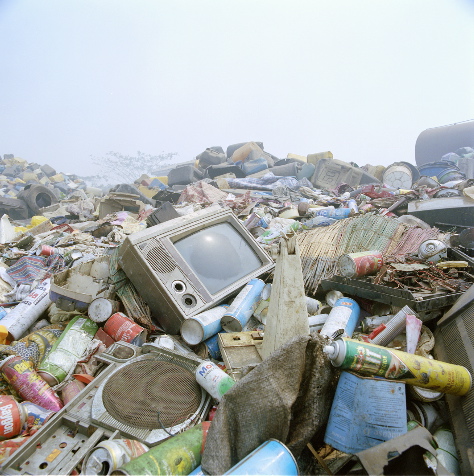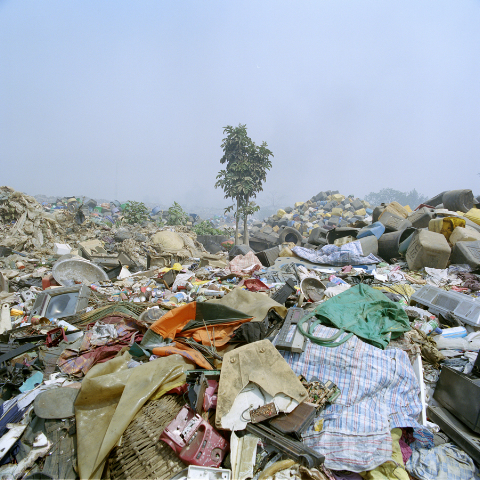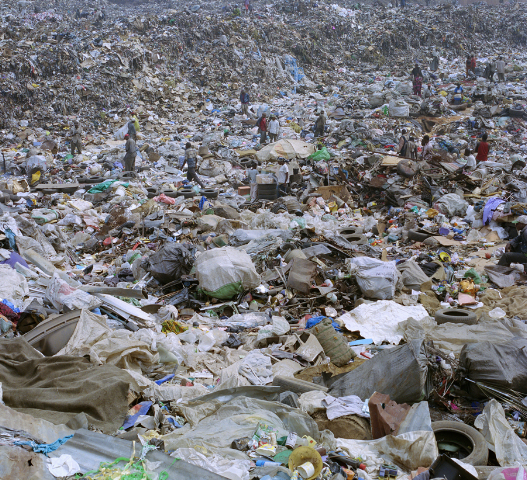
My Year of Nothing New
 I’m an American citizen. This means last fall I began hearing that I should “get out there, spend money, and buy more stuff.” I was told this is the part I need to play as an American in helping jumpstart our economy again.
I’m an American citizen. This means last fall I began hearing that I should “get out there, spend money, and buy more stuff.” I was told this is the part I need to play as an American in helping jumpstart our economy again.
This spending solution seemed to be the one principle our government and all the pundits agreed upon. And apparently it’s what the founding fathers would want me to do.
Each week the adman insisted that there has never been a better time for me to buy a car, house, or iPhone. Here in the United States of Advertising the message is always the same: “now is the time to buy!”
So I decided now was the time for a little economic experiment. I will not be buying anything new for a year.
This means no new clothes, music/iTunes, appliances, or electronics. The only exceptions are basic consumables (such as toothpaste and food) and books (which would also be banned if I wasn’t in the middle of grad school).
2009 is my year of nothing new. I like to think of it as a retail shopping sabbatical or a fast from consumerism.
Before I go any further, let me give a disclaimer. I’m no economist, nor do I presume to understand the complexity of the mess we’re currently in. But this also doesn’t discredit what I have to say on the matter. Though I don’t have a degree in economics I still have to make financial decisions – just as those without a degree in theology still make spiritual decisions. That leads me to my next point: I would contend this is in fact a spiritual issue.
America is a very religious country - and our religion is consumerism. Shopping has become a sacred activity, we look to our stuff for spiritual fulfillment, and our holidays are shaped more by buying than by the Christian (or any other religious) calendar. I once heard that you can tell what a society values most by looking at its tallest buildings. There was a time when our tallest buildings were church steeples, then academic institutions. Now all of our skyscrapers are financial centers and businesses. All of them.
So my year of nothing new is a spiritual discipline, economic exercise, and political statement wrapped up in one.
Our Old Stuff

These photographs (including the one at the top of this post) were taken by my sister in Nigeria last January. She has been working on a new book about trash in developing countries and traveling to some of the largest garbage dumps in the third world. What happens to our old stuff (computers, TVs, phones, electronics, etc.) when we throw it away and buy new stuff? Misty’s photos don’t tell us, they show us.

These gigantic landfills in Nigeria are full of our old stuff. We pay poorer countries to let us dump our toxic waste in their cities. Why don’t they object? As my sister says, when you’re living in dire poverty it’s hard to say no to a little bit of good for a whole lot of bad.
Most Americans are unaware of this global economic hierarchy of trash, but those in the third world aren’t. That’s because people live in these dumps (look closer at the photo). This is what my sister wrote in an email when she returned home:
“I spent time in two dumps and one of them was on fire the length of my visit due to spontaneous combustion and uncontrolled methane gas. Communities of people scavenge in these dumps every day for parts than can be reused or sold for recycling. The majority of people working in the larger dump also live there, an estimated 1200 of 2000 scavengers also call the dump home. It is an unbelievably toxic environment for home and work.”
But we’re only catching the tail end of the story. Here’s what a larger biography of our old stuff would look like: it’s taken from natural resources in South America, built and assembled in China, bought and used in the USA, then thrown away in this Nigerian landfill. (Annie Leonard created a web-based documentary to show how all this works.)
In their book, Stuff: The Secret Lives of Everyday Things, John Ryan and Alan Durning report: “Though they see only a fraction of it, Americans consume 120 pounds – nearly their average body weight – every day in natural resources extracted from farms, forests, rangelands, and mines.” Our lust for stuff makes the rest of the world miserable. Could it be that our globalizing Western economy is a social Darwinism (survival of the economically fittest) in disguise? Over a billion people suffer from water scarcity, deforestation in the tropics destroys an area the size of Greece every year, more than half of the world’s fisheries are over-fished, and one-third of the world’s population is undernourished. All the while we shop at The Container Store to buy stuff to hold more stuff.
A year of nothing new is a form of resistance to such an economics of extinction. I’m being told that our economy will continue to crumble if I don’t get out there and buy new stuff. I don’t wish to see unemployment increase or more people struggle to provide for their families. But I have no interest in prolonging an economy that only works if people are addicted to shopping and possessed with consuming.
Mugs and Motorola
So it’s been five months today since I began my year of nothing new. I’m learning I don’t need as much as I thought; learning to reuse and repair what I already have; and learning to borrow and share more than I have in the past. And when I want something new in the future, I can see myself asking, “Is this really worth bringing another piece of plastic into the world?”
For the most part I haven’t found it very difficult. But at other times it’s been a bit frustrating, like when I left my travel mug on the train. In the past I would have simply bought a new one without thinking about it, but this time I went without. A couple of weeks later I found one in the seminary’s lost and found that would have soon been discarded.
I’ve also had a few things break that can’t be fixed. My phone charger stopped working back in January, so I’ve bootlegged if off my Bluetooth charger ever since. Then about three weeks ago the microphone in my Bluetooth headset went dead. I’ve used a Bluetooth to talk on the phone for the last four years, and I’ve had my current one (Motorola) for a year and a half. I’ve contacted Motorola twice and been told twice that I’m welcome to search their online store to buy a new one. They’ll even discount it for me. But when I told them I wanted to pay to have my old one repaired, they didn’t have an answer. Instead I was invited once again to shop their online store.
Sparking our economic imagination
Soon after making this commitment my girlfriend decided to join in on the year of nothing new. She’s reusing what would normally be tossed away and making an effort to borrow rather than buy (such as a dress for a wedding she was in). It’s just been the two of us, but it’s made me think how exciting it would be to do this with a larger community.
What if a family tried this for a summer or a school year? What if a group of friends went in on it together and shared what they already own collectively? And what if a church practiced this with their budget for one fiscal year? I wonder how our families, friends, and congregations would be impacted.
Ched Myers writes, “Lifestyle changes are not a political solution to anything, but can represent a political question to everything.” I offer my year of nothing new as not a solution, but simply a protest. I hope it will fire our imaginations to envision new ways of doing economics.
We need resourceful, alternative ways to think about goods and services. We need to learn to spend less, waste less, and use less, which means we need to learn to want less and need less. We need an economics that’s connected to local life, generous toward our global community, conscious of our neighbors downstream (the environment), and considerate of future generations.
We need an economics where everyone gets enough rather than a few getting stuffed. Until then, let us find ways to protest and resist.